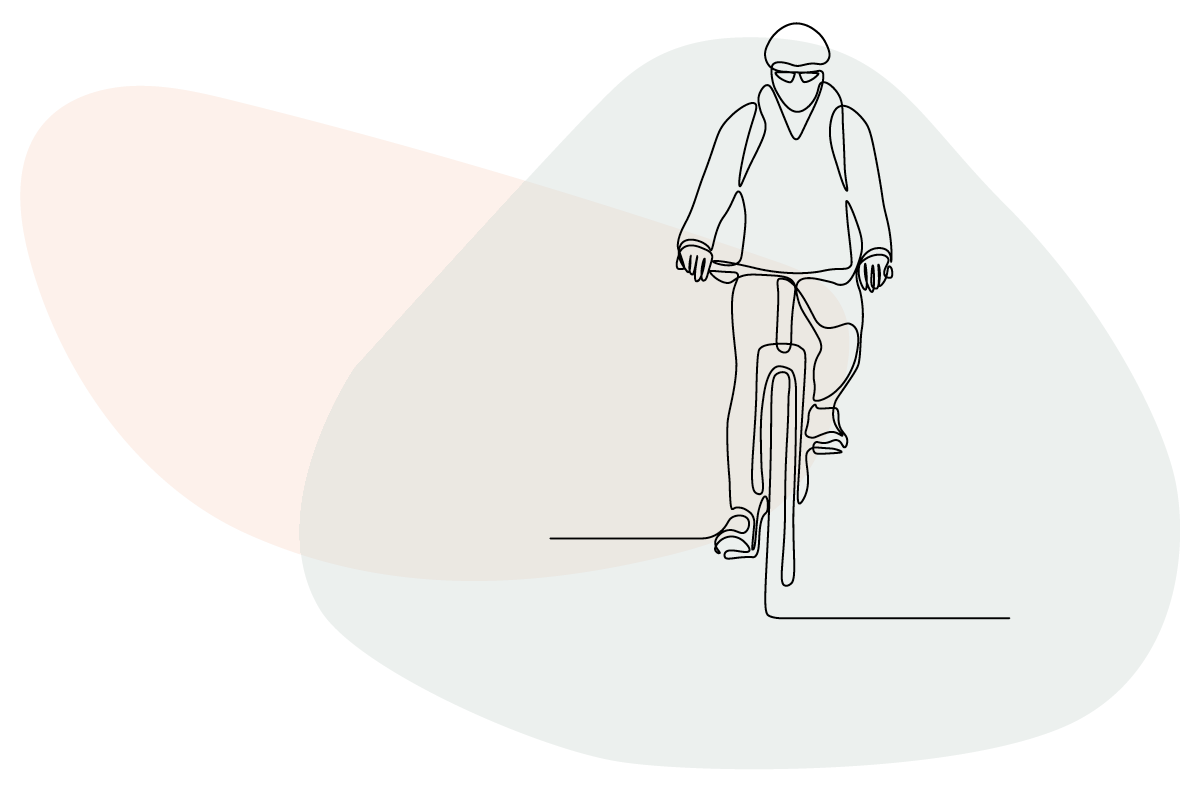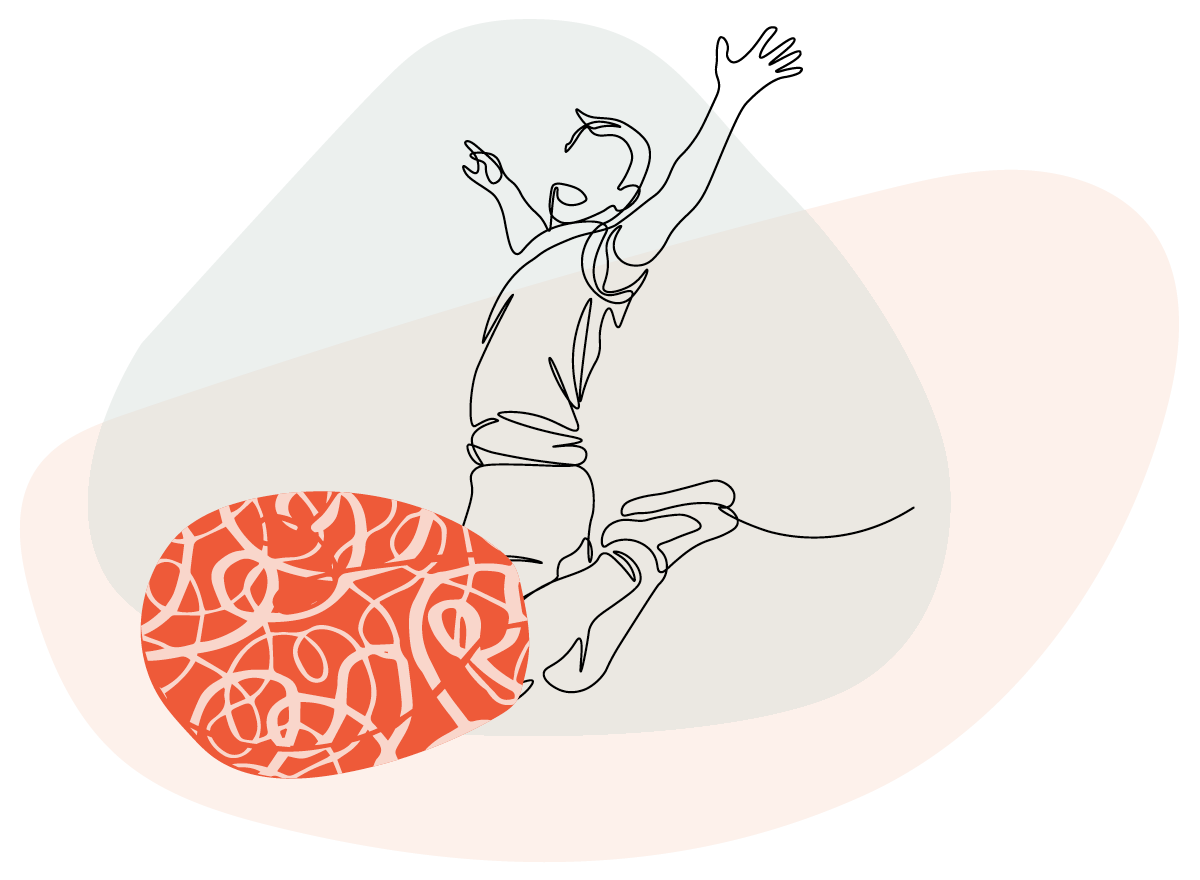HELPFUL SUPPORT
FOR LONG‑TERM WELLNESS

Living with hypothyroidism is a process—be patient, celebrate victories, and take things one step at a time.
HELPFUL SUPPORT
FOR LONG‑TERM WELLNESS

Living with hypothyroidism is a process—be patient, celebrate victories, and take things one step at a time.
BUILD YOUR SUPPORT SYSTEM1
You are not alone. Create a circle of family, friends, healthcare team members, others living with hypothyroidism, and coworkers to accompany you on your journey.
KEEPING OTHERS INFORMED IS IMPORTANT
Use your voice to speak up for what you think, feel, or need.
CONNECTING WITH OTHERS LIVING WITH HYPOTHYROIDISM IS REWARDING
Sharing your thoughts and feelings with others who really know what you’re going through can help in so many ways.
FINDING SUPPORT GROUPS AND ORGANIZATIONS IS VITAL
The thyroid community is vast and varied—and ready to have you join them. Find online groups and local organizations and be an involved participant.
COMMUNICATING WITH EMPLOYERS AND COWORKERS IS CRITICAL2
You have rights and responsibilities. Be open, honest, and authentic when voicing your needs. Ensure that you receive the accommodations you deserve to remain a productive and valued teammate.

TRY HEALTHY EATING
FOR A HEALTHY THYROID3
TRY HEALTHY EATING
FOR A HEALTHY THYROID3
While you don’t have to follow a special eating regimen while on medication, some foods can interfere with certain medications. Foods like soy, cottonseed meal, fiber, and grapefruit juice can affect how your medication works. If you eat these foods on a regular basis, you should talk to your healthcare provider.
- Eat nutrient-rich foods like fruits, vegetables, nuts, and whole grains.
- Cut back on processed foods such as soft drinks, potato chips, and other junk foods.
- Cut back on sugar and sugary foods such as desserts, sugary drinks, and artificial sweeteners.
- Foods to help fight inflammation include organic berries, dark leafy greens, wild-caught fatty fish, and avocados.


BOOST FITNESS AND
ENERGY WITH EXERCISE4
BOOST FITNESS AND
ENERGY WITH EXERCISE4
- Hypothyroidism can lead to fatigue and weight gain—create your own routine of activities to keep you feeling vibrant and confident!
- Talk to your healthcare provider or others living with hypothyroidism with experience to create an exercise plan that works for you.
Find an activity you enjoy so your workouts are fun! Maybe even find workout partners who help you stay motivated and engaged.


KEEP A STRONG SPIRIT AND
POSITIVE ATTITUDE1
KEEP A STRONG SPIRIT AND
POSITIVE ATTITUDE1
- Finding ways to stay calm and lower stress are always key for maintaining your healthful progress.
- Your attitude affects everything. Reading and reciting affirmations—and practicing daily gratitude—help shift your perspective.
Meditation and yoga techniques can aid in a variety of ways. Join a studio, start your own group, or take an online class.
HOW TO BE YOUR OWN ADVOCATE
SEE MORE >
HOW TO BE YOUR OWN ADVOCATE
SEE MORE >
References: 1. Boost Thyroid. Understanding your condition and staying healthy. Accessed August 14, 2020. https://www.boostthyroid.com/newly-diagnosed 2. Job Accommodation Network. About thyroid disorders. Accessed August 14, 2020. https://askjan.org/disabilities/Thyroid-Disorders.cfm 3. Harvard Health Publishing. Healthy eating for a healthy thyroid. Accessed August 14, 2020. https://www.health.harvard.edu/staying-healthy/healthy-eating-for-a-healty-thyroid 4. Cleveland Clinic. Is your thyroid uncontrolled? What you need to know about exercise and diet risks. October 13, 2013. Accessed August 14, 2020. https://health.clevelandclinic.org/uncontrolled-thyroid-exercise-diet-risks/



